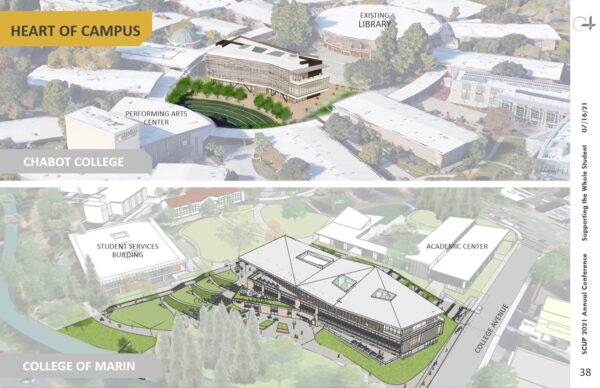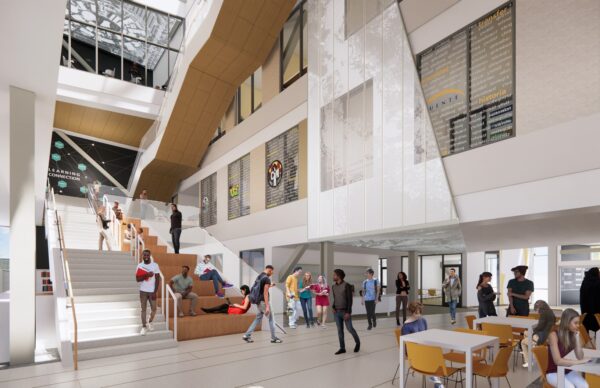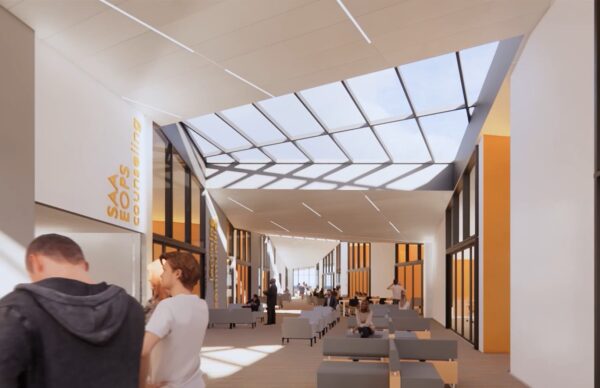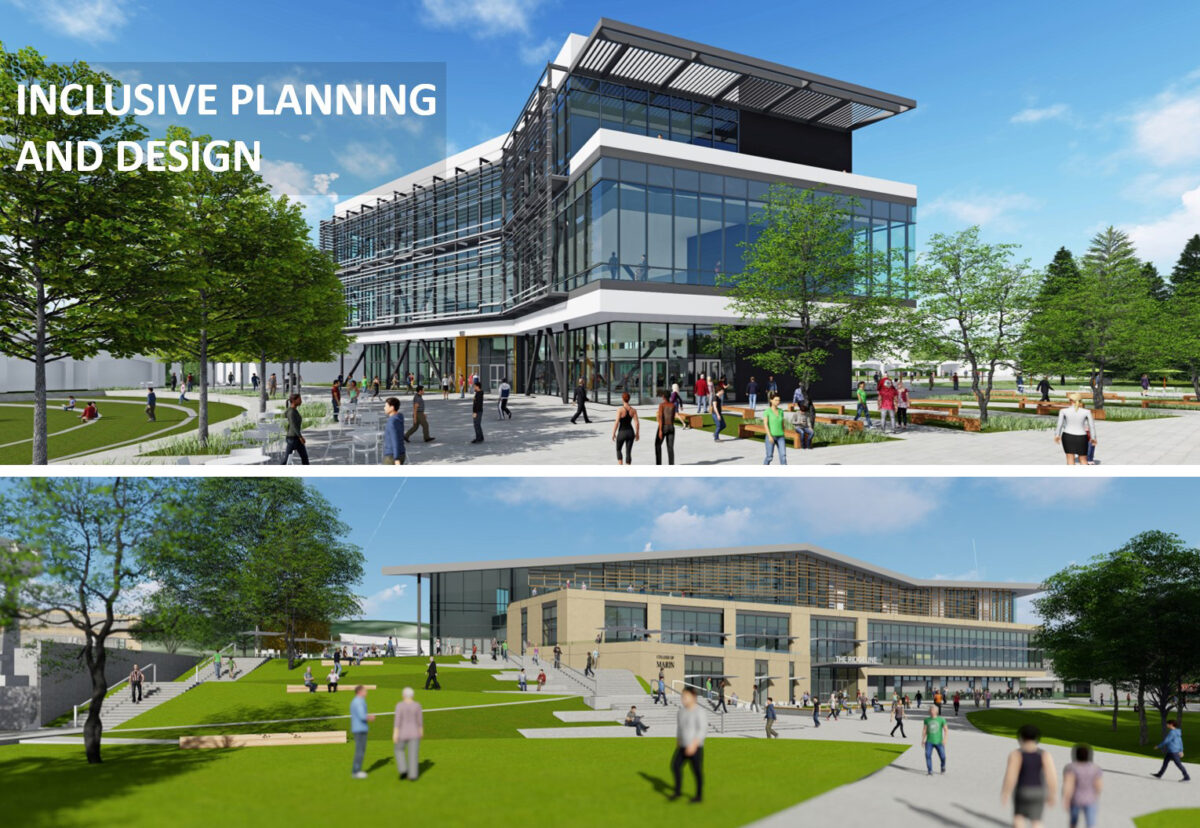Challenging neutrality through college library design – discussions at SCUP and CLA conferences
“I wonder what it’d be like for a community space to hold the struggles, failures, and pain of our people, rather than glamorize its accomplishments and beauty. To me, it’d inspire, motivate, and challenge me to do better, and I believe the same for the community of Chabot.” – Chabot College student
Group 4 has been re-envisioning community college libraries as welcoming, blended learning centers, simultaneously reflecting and transforming student experiences. New designs for the Chabot College Library and Learning Connection and College of Marin Integrated Learning Center set examples for how to adopt an attitude of cultural humility and listen to the stories and needs of diverse students. Both centers aim to disrupt the traditional model of college libraries to enable all students to succeed in blended learning centers that align better with holistic student experiences.
This was the primary topic addressed at the recent SCUP (Society for College and University Planning) national conference and CLA (California Library Association) statewide conference presentations. Guided by the research of Chabot College Library Coordinator/Information Literacy and Outreach Librarian Dr. Kim Morrison, Group 4 strives to design anti-racist libraries. This means incorporating precepts of critical race theory to combat systemic racism, to address the lived experiences of the majority non-white student population, and to engage in counter-storytelling to spread the knowledge of marginalized peoples. Group 4’s design process questions assumptions about traditional student needs, assesses barriers, and engages stakeholders.
Insights from an inclusive planning and design process pushed both learning centers to go beyond career and educational assistance, and support personal development, enrichment, and wellness. Running around between many service points and lack of access to equipment are the top two challenges students face when accessing student services, according to a poll among SCUP session audience members. Non-alignment of hours, uninviting service points, and rigid policies around noise and eating were also identified as challenges. By co-locating services, college learning centers can support a wider diversity of student needs, ranging from academic preparedness and college life navigation to financial literacy and access to food and clothes pantries, mental health assistance, a children’s center, and more. Beyond access to such spaces and resources, the learning centers can raise awareness of these opportunities by ensuring services are visible, approachable, and centrally located.
At Chabot, clear sightlines and transparency on the ground floor promote inclusion by showcasing available spaces and inviting visitors inside. A range of spaces for learning communities on the second floor of the new Library and Learning Connection promotes diversity. A welcoming, great reading room for all students on the highest floor promotes equity.
The new College of Marin Integrated Learning Center also encourages individual and communal ownership of the space. From the moment they enter, visitors should see peers and staff members socializing, studying, and learning, as well as student art, relevant technology, comfortable study spaces, browsable collections, supplies, and even food and drinks. Instead of dusty archives and siloed support services scattered across campus, the integrated services at both future learning centers promote a new vision for how to champion equity on college campuses.
Thank you to Dr. Stacy Thompson, Dr. Kim Morrison, and Pedro Reynoso of Chabot College, Jon Horinek of College of Marin, and Kelly Sanford of Brightspot Strategy for presenting at the conferences with Group 4 Principals David Schnee and Andrea Gifford. Thanks also to associate architect HMC.





